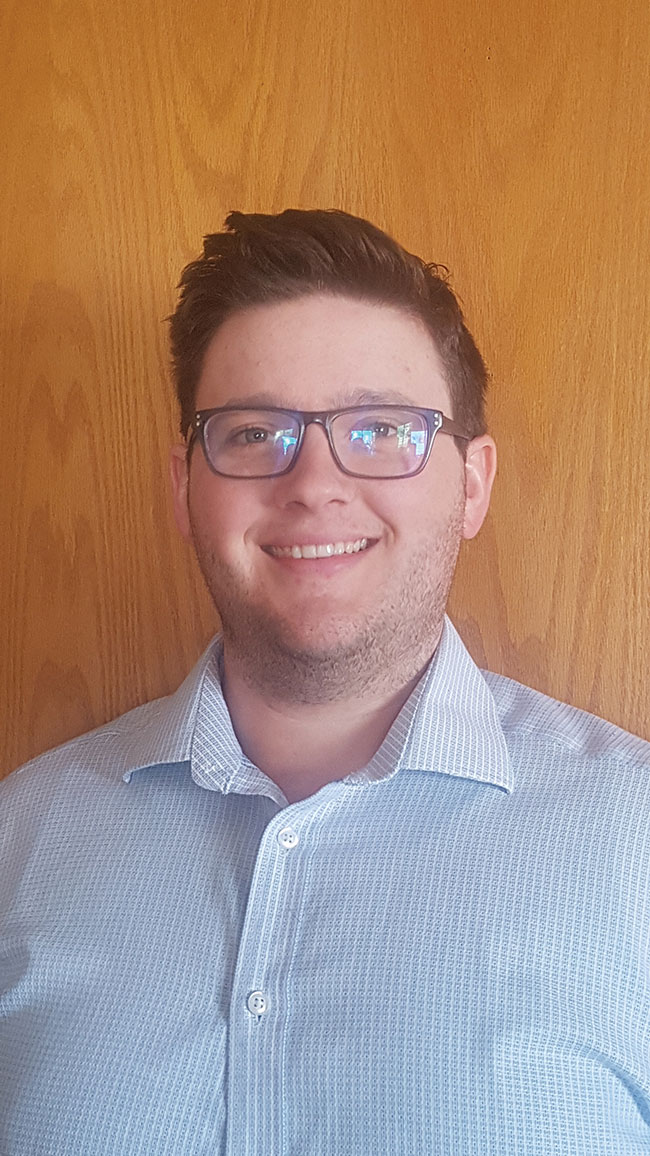
5 questions with sustainability researcher Ian Turner
By Brett Ruffell
Features Researchers SustainabilityInnovative research focused on sustainability, animal welfare in Canada's egg industry.

Concerns around food sustainability continue to grow. That’s why Ian Turner and his colleagues in the University of B.C.’s Food Systems PRISM Lab under Nathan Pelletier are seeking answers to this challenge. For his Ph.D. research, Turner is working with a team of experts to investigate how to optimize Canadian egg production systems to minimize negative environmental and animal welfare impacts, while maximizing the positive impacts of these systems. We asked him give questions.
Why sustainability in poultry?
I was always interested in sustainability. But it was never my goal to end up in sustainability research. I finished my undergrad at the University of Toronto, studying animal physiology and genome biology and planned to go to vet school. However, that plan fell flat. On a whim, I got asked to work with Nathan Pelletier at UBC on a summer contract. I thought, why not take a chance and move across the country and throw myself into a completely new field. And I ended up really enjoying it. Things took off from there.
What did you focus on first?
I came on as a master’s student for a project that Nathan had with Egg Farmers of Canada at the time that was looking at efficiency in the Canadian egg industry. So, he basically wanted to develop an assessment of how efficiently the industry was operating throughout the different housing systems. And then he wanted to see how far could the environmental impacts be reduced if you brought the industry as a whole to peak efficiency levels.
Why expand into welfare?
It was actually my idea to add in the animal welfare component. So, I basically told Nathan that I would work with him, but I wanted to focus on animal welfare as well. Luckily, Nathan was well acquainted with poultry welfare expert Tina Widowski at the University of Guelph, who I collaborated with. We then developed an animal welfare assessment methodology using the same framework that we use for environmental assessments. That way, we can conveniently look at different tradeoffs.
What’s next for your work?
The next step for my research is going to be integrating some machine learning. Broadly, it applies to using computers to try and pick out patterns or make predictions based on data you provide. We want to look at all of the environmental and animal welfare impacts that we have using the methodologies that I developed. And we want to utilize machine learning to find a set of circumstances in which the positive animal welfare impacts are maximized as much as possible, while all of the negative environmental and animal welfare impacts are minimized.
What’s your biggest career goal?
The short answer really is I’m not 100% sure yet. The nice thing about the field that I’m working in with lifecycle assessment and now some machine learning is that they are very transferable skills. And once you understand the frameworks, you can apply them really anywhere across the board. Very broadly, I hope that I’ll be able to continue helping people get on the path towards a more sustainable future.
Ian Turner is a PhD student working in the Food Systems PRISM Lab at the University of B.C. under Nathan Pelletier.
Print this page